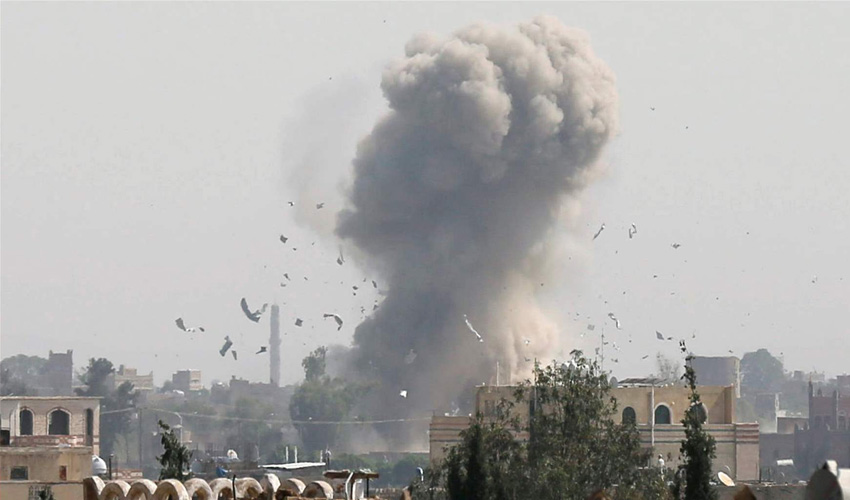The United States military on Saturday announced airstrikes targeting Houthi-linked sites in Yemen’s capital, Sanaa, to curb the rebel group’s operations amid a series of escalating regional confrontations.
According to a statement by the US Central Command (CENTCOM), the strikes targeted a missile storage facility and a "command-and-control" site, aiming to "disrupt and degrade Houthi operations."
The strikes come in response to recent attacks by the Iran-aligned Houthi rebels on US Navy and merchant vessels in the Red Sea, Bab al-Mandeb Strait, and the Gulf of Aden.
Rising tensions in Middle East
The strikes occur against the backdrop of intensified hostilities between the Houthis, formally known as Ansar Allah, and Israel. On Thursday, Israeli forces launched strikes on several targets in Yemen, including power stations near Sanaa, following a Houthi missile attack on Tel Aviv. The Israeli bombardment reportedly killed at least nine people.
In the early hours of Saturday, the Houthis claimed responsibility for a ballistic missile attack on central Israel. The projectile, which landed in the Tel Aviv-Jaffa area, caused mild injuries to at least 16 people, according to local emergency services.
The Houthis have escalated their drone and missile attacks on Israel in solidarity with Palestinians in Gaza, where the ongoing Israeli military offensive has resulted in over 45,000 deaths. The Yemeni rebels have also intensified attacks on shipping lanes in the Red Sea, further heightening tensions in the strategic region.
US and UK response
The US and UK have ramped up their air campaigns against Houthi targets in Yemen in response to assaults on international shipping. The Biden administration has also imposed a series of sanctions on Houthi officials and their associated networks.
On Thursday, Washington sanctioned the governor of the central bank in Houthi-controlled Sanaa, along with several officials and companies linked to the rebel group. The sanctions accuse them of facilitating the acquisition of "dual-use and weapons components."
CENTCOM reaffirmed the US’s commitment to safeguarding maritime routes and countering threats in the region. “We will continue to take measures to ensure freedom of navigation and protect our interests and allies in the Middle East,” the command said in a social media post.
Regional fallout
The escalating violence underscores the complexity of the Middle East’s geopolitical landscape. With the Houthis linking their actions to the situation in Gaza and the US stepping up its military involvement, the conflict risks further destabilizing the region.
As Yemen grapples with its protracted civil war, the strikes add another layer of volatility to a conflict that has already led to widespread humanitarian crises and regional proxy battles.



























